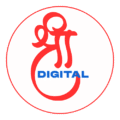Marketing has always been about understanding people—their needs, preferences, and behaviors. But in today’s digital-first world, relying solely on intuition or traditional methods isn’t enough. Audiences are fragmented across platforms, competition is fiercer than ever, and consumer expectations keep evolving. That’s where data-driven marketing agencies come in. By leveraging analytics, insights, and technology, these agencies design campaigns that don’t just reach people—they resonate, engage, and convert.
In this post, we’ll explore why data-driven agencies are outperforming traditional approaches, how they deliver better campaigns for brands, and why choosing the best digital marketing strategies is essential for staying competitive.
What Does “Data-Driven Marketing” Mean?
At its core, data-driven marketing is about using data to guide decisions rather than relying purely on assumptions or guesswork. This data can come from multiple sources:
Website analytics (traffic, behavior, conversions)
Social media insights (engagement rates, reach, demographics)
Customer relationship management (CRM) systems
Paid ad platforms (Google Ads, Meta Ads, LinkedIn Ads)
Surveys, feedback, and customer research
When agencies gather and interpret these data points, they gain a deeper understanding of target audiences—who they are, what they want, and how they behave. From there, campaigns can be tailored for maximum impact, aligning with the best digital marketing practices that drive measurable growth.
The Benefits of Data-Driven Campaigns
1. Precision Targeting
One of the biggest advantages data-driven agencies offer is accuracy. Instead of casting a wide net and hoping for results, they use audience insights to segment prospects by demographics, interests, or behaviors. For example, a campaign might target new parents within a 20-mile radius of a retail store, or professionals who recently searched for project management software. This precision minimizes wasted ad spend and ensures campaigns reach the right people at the right time.
2. Personalization at Scale
Consumers expect personalized experiences. A generic message may fall flat, but when content speaks directly to someone’s needs, engagement skyrockets. Data-driven agencies use tools like dynamic ad creatives, personalized email sequences, and AI-powered recommendations to tailor messaging for different audience segments. This not only boosts engagement but also strengthens brand loyalty—making personalization one of the hallmarks of the best digital marketing strategies.
3. Real-Time Optimization
Traditional campaigns often rely on “set it and forget it” methods. Data-driven agencies, on the other hand, continuously monitor performance. If an ad creative isn’t resonating or a keyword isn’t delivering clicks, adjustments are made in real time. This agile approach allows campaigns to evolve and improve while they’re live, maximizing return on investment (ROI).
4. Measurable Results
Every marketing dollar counts. By using data, agencies can track performance across multiple channels and directly connect activities to outcomes. Whether it’s website visits, lead generation, or sales, data-driven campaigns provide measurable insights. This transparency makes it easier for brands to understand their ROI, justify marketing spend, and see how the best digital marketing strategies drive real business growth.
The Tools Behind Data-Driven Marketing
Technology is the backbone of data-driven strategies. Leading agencies use an ecosystem of tools to gather, analyze, and act on insights. Some of the most common include:
Google Analytics & GA4 for website performance and user behavior.
CRM systems like HubSpot or Salesforce to manage customer data.
Ad platforms such as Meta Ads Manager, Google Ads, and LinkedIn Campaign Manager for audience insights.
Marketing automation tools like Marketo, Klaviyo, or ActiveCampaign to personalize experiences.
AI and machine learning tools that predict customer behavior and optimize ad delivery.
The integration of these tools allows agencies to create a complete picture of the customer journey—from awareness to purchase—and refine campaigns accordingly.
Case in Point: Turning Insights Into Impact
Imagine a retail brand launching a new line of eco-friendly clothing. A traditional campaign might simply run ads promoting the product across a broad demographic. Data-driven marketing agencies, however, take a smarter approach:
Analyze past purchase data to identify which customers are most likely to buy sustainable products.
Segment audiences based on factors like eco-conscious values, online shopping habits, and geographic location.
Create personalized ad creatives—for example, highlighting sustainability for one audience and affordability for another.
Launch campaigns across social media, search, and email with A/B testing built in.
Continuously refine targeting and creatives based on real-time performance data.
The result? Higher engagement, more conversions, and better use of the brand’s marketing budget. By combining audience insights with the best digital marketing practices, agencies ensure that campaigns don’t just reach people—they connect with the right people at the right time.
Why Businesses Are Shifting to Data-Driven Agencies
Brands today operate in a highly competitive environment. Customer attention is fleeting, and traditional methods can feel like a shot in the dark. Businesses are turning to data-driven agencies because they deliver:
Efficiency – Smarter spending with higher ROI.
Clarity – Clear reporting and insights that tie marketing to business outcomes.
Innovation – Use of AI, predictive analytics, and automation for future-proof strategies.
Customer-centricity – Campaigns designed around real customer needs, not assumptions.
Final Thoughts
Data-driven marketing agencies are changing the game by replacing guesswork with insights, and assumptions with evidence. They don’t just deliver ads—they deliver meaningful, measurable results.
For brands, partnering with a data-driven agency means more than just better campaigns. It means building stronger customer relationships, optimizing budgets, and staying ahead in a fast-changing market. And when combined with the best digital marketing strategies, businesses can create campaigns that not only capture attention but also drive lasting growth.
In a world where every click, view, and purchase tells a story, data is the key to unlocking campaigns that truly connect.
